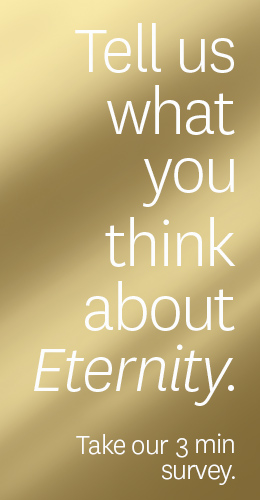“I did not have sexual relations with that woman …”
Is this the most famous denial in modern history? President Bill Clinton’s failure to confess to his sexual liaison with White House intern Monica Lewinsky is, even now, squirm-worthy to watch if you conjure it up from the depths of YouTube. Clinton had—and still has—a capacity to elicit sympathy from an observer, so that despite yourself, you can’t help feeling that this warm and friendly Southerner was only doing what any of us would have done in the same situation. And seeing him wriggle like a worm on the end of a hook makes you wonder just for a moment: what if it were me? After all, we have all done things of which we are ashamed, even if it didn’t involve pawing young interns in the Oval Office. If I were asked about my secrets in front of a thousand hungry journalists with snapping cameras and sharpened pencils, I would probably (if I am honest) deny all too. Wouldn’t you?
Contrast the website which is called confessions.com.au, which is just one of a number of ‘confession’ style sites. Give people the veil of anonymity and out it pours: page after page of the awful truth. “I have made my wife’s friend very pregnant,” says one person. Another says, “I cheated in my final exam of school and my university exams and now I am a qualified doctor.” Sometimes there’s deep regret in these admissions. But, sadly, sometimes there isn’t. Sometimes there’s even a kind of sinister joy that the person is not what they seem.
This is an oddly disturbing window into the human soul, revealing that what we see of people in public is simply not the full story. For most of us, the white heat of the truth is too much for us to bear. It is too hideous a prospect to think that we might have to link ourselves to our secret thoughts and actions.
In these tortured confessions there is a sort of fear—the fear of exposure and shame. For what they know is what Bill Clinton knew: that the court of public opinion is an extremely unforgiving judge. The prospect of admitting the truth carries with it only shame and humiliation, even when the truth in question is not actually a matter of moral culpability. A number of the confessions on confessions.com.au are about having an eating disorder, or feeling fat, or having depression, or being in love with someone. However, when the issue at hand is a matter of real wrong, and the potential for a form of punishment looms, then owning up takes even more courage. As a result, most of us only admit to the things that we can’t deny. In the end, President Clinton had to confess on national television, but only because it had become impossible for him to deny the truth any longer in the face of the tangible evidence (that dress) and the testimony of witnesses.
This prompts me to make two observations. The first of these has to do with the judge before whom we feel we have to stand: namely, the public. Now, who ‘the public’ are differs in each case. For Clinton, it was the whole world. For you and I, it might simply mean those people who know us or know of us. Whatever the size of ‘the public’ though, it is remarkable how punitive and unforgiving we feel it to be. We do not usually cut other human beings very much slack; indeed, we quickly condemn people not simply for their sins but also for their weaknesses. And we are happy to do so on the flimsiest of evidence: the half-truth, the whisper campaign, the rumour.
The second observation is this: because we hate to confess what we are really like and to admit to what we have done, we live in a kind of inauthentic state. We perform our lives in public as carefully edited versions of our true selves. Partly, this is because at times even we are at a loss to fathom our own actions. We feel that sometimes we are not truly ourselves, so we say, “I was drunk”, or “I was in a fit of rage”, or “I was seduced”, or “I am addicted”. These are all ways in which we separate ourselves, ever so slightly, from our actions. But who are we, if we are not what we have done?
I recently saw a documentary about internet trolling in which the filmmakers tracked down and confronted a young man whose internet name and IP address had been linked to some absolutely vile comments made on an ‘RIP page’ on Facebook (a page set up by grieving relatives of a young person who had been tragically killed). When asked on camera if these comments were his work, the young man said, “No, someone hacked into my account and used my name to make these comments”. Of course, it was untrue. But he was simply unable to own up to the reality of his own story, and needed to dissociate himself from himself.
The Christian church has always practiced confession. In fact, it recognizes in the New Testament that a moment of confession is the very beginning of the Christian life. It is the tax collector who simply prays, “Have mercy on me, a sinner”, who goes home justified, and not the Pharisee, who admits nothing. But we’ve just seen how difficult it is for most people to confess before other human beings. What makes it even thinkable that one would confess before God?
The God of the Bible is, of course, the one who judges, and judges perfectly. Nothing escapes his notice; he is not bluffed nor fooled. You cannot act before him, since he sees behind the mask. That’s the voice of Psalm 96:13: the Lord is the one who delights the creation by coming to judge in righteousness. This was Adam and Eve’s problem. They could not find a place to hide from the judgment of God. They were utterly exposed before him, and pathetic in their attempts to cover up. On the one hand, that we have to face the just judgment of Almighty God is an utterly terrifying thought. It means that there is no chance of concealing the truth from God, even as much as we might bluff others. There’s no point in being anything but honest with him.
But in fact, there is a comfort in this, for God does not look at us with prejudice. In contrast to the way human beings judge one another, God looks at us as we really are. We can have confidence in his justice, even as we have no confidence in ourselves.
On the other hand, the God of Jesus Christ is the God who, in his righteousness, pours out mercy. Even though we have erred and strayed from his ways like lost sheep, and followed too much the devices and desires of our own hearts, we come before the merciful Father who loves to forgive.
This is the story of the prodigal son, isn’t it? The prodigal son, eating pig food in a far country ‘came to his senses’ or, more literally, ‘came to himself’. And he wonders aloud: “I will arise and go to my father, and will say to him, ‘Father, I have sinned against heaven and before you, and am no longer worthy to be called your son.’” (Luke 15:21)
Here’s the thing: it’s true. It’s not a moment of great self-esteem at which the lost son remembers how inherently worthy he is. By rights, he has no rights.
And yet, what does he discover? Well, it is true that he receives no joy from his elder brother. But that is because the Father is irritatingly insistent on showering his tender mercy upon the returning son.
Many Christian churches open their services by inviting the congregation to confess their sins. It might seem as if this is a dour reminder of our inadequacies and failings, and a rather grim thing to be doing on a Sunday when you could be enjoying a late breakfast. But the Christian can confess with confidence, not simply because he or she will find in God a righteous judge, but because ‘if we confess our sins, he is faithful and just and will forgive us our sins and purify us from all unrighteousness’. To confess your sin is to express confidence in the gospel of Jesus Christ, the one in whom God displayed both his justice and his mercy. And it is a gloriously counter-cultural testimony to the ‘admit nothing’ world.
Image: http://bit.ly/19erAQa (used under CC license)
Email This Story
Why not send this to a friend?



